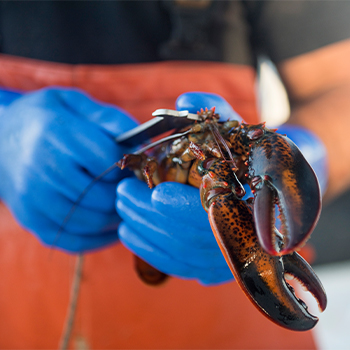
Marine research funding awarded to UMM professor
The effects of ocean acidification on lobsters, crabs, clams, mussels and scallops is one of three new marine research projects at the University of Maine at Machias awarded funding from the Maine Economic Improvement Fund (MEIF) Small Campus Initiative.
UMM professor of marine ecology Brian Beal will lead the three projects awarded a total of $300,000 that will increase capacity for applied marine research and development in Down East Maine. The research projects also will engage undergraduate students.
The first project will examine effects of ocean acidification on commercially important, calcified marine organisms, such as lobsters, crabs, clams, mussels, scallops — a global problem that has implications for healthy, sustainable wild and cultured fisheries in Maine. A postdoctoral research associate will be hired to help conduct the research, and to assist in assembling a lab at UMM’s marine science field station at the Downeast Institute in Beals, Maine.
A second project will build on work initiated in 2018 to create a selective breeding program designed to improve genetic lines of American and European oysters for growth in the cold waters of Down East Maine. The goal of the project is to produce a line of fast-growing, disease-resistant animals that eventually will become commercially available to eastern Maine oyster farmers.
A third project will examine an aquaculture species, the Atlantic razor clam, typically harvested in the fall and winter in Maine. Researchers will examine culture techniques in the hatchery to produce juveniles for eventual grow-out under field conditions.
The MEIF Small Campus Initiative is a competitive funding program, created by the University of Maine System in 2009. The program’s goal is to provide research-and-development funding for the five smaller campuses in the University of Maine system.
